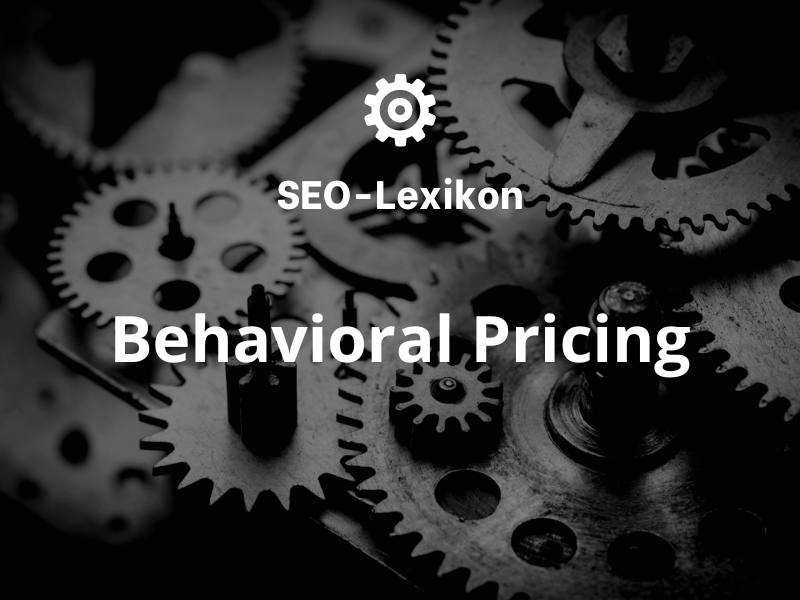Definition
Behavioral Pricing is a special form of price management in which suppliers dynamically adjust prices based on a buyer's purchase history. These price adjustments vary according to buyer behavior, shopping habits, and even the buyer's social environment. Behavioral pricing is based on a combination of analytical models and customer behavior.
Advantages of Behavioral Pricing
The biggest advantage is that providers can adjust the price individually for each customer. This enables companies to adjust prices to the specific needs and behaviors of their customers and thus provide better customer service. In addition, behavioral pricing also allows providers to increase revenue by setting certain customers at higher prices, which allows them to generate more revenue.
Disadvantages of Behavioral Pricing
One disadvantage is that it can lead to a loss of customer confidence if customers feel they are paying different prices for the same product. In addition, it can also be difficult to determine the right pricing strategy, as there are many factors that can influence the price.
Use cases
Behavioral pricing can be applied in many different industries, especially in industries where prices need to be adjusted regularly to attract customers. Examples of industries in which Behavioral Pricing successfully applied are the retail, finance and transport industries.
Examples of Behavioral Pricing
An example of Behavioral Pricing is dynamic pricing, where prices are adjusted based on demand or available resources. For example, a hotel may dynamically adjust the price of a particular room based on how many guests are expected at a particular time.
Another example of behavioral pricing is segmentation by customer segment. Suppliers can set different prices for different customer segments depending on the customer's shopping habits and social environment.
Conclusion
Behavioral Pricing is a versatile pricing method that helps suppliers customize the price for each customer. It can be applied in many industries and help companies increase their sales. Behavioral Pricing but also has some disadvantages, such as loss of customer trust, and it can be difficult to determine the right pricing strategy.
« Back to Glossary Index


